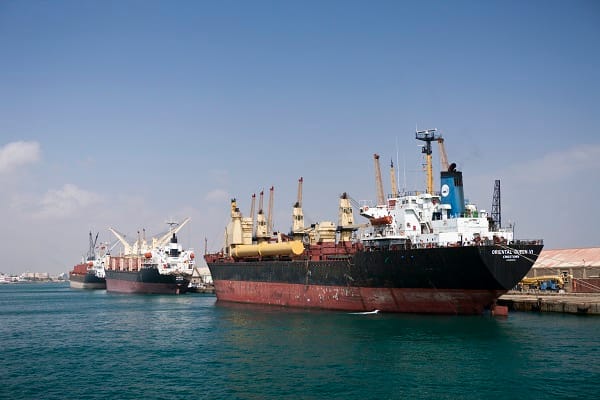In addition to the devastating loss of life and mounting humanitarian crisis, the ongoing war between Israel and Hamas has also caused a growing backlog of ships at ports near Israel and Gaza, which has the potential to unsettle global supply chains.
For example, the Port of Ashdod, a vital port situated near the Gaza border, has restricted the transport of hazardous materials.
Meanwhile, the Port of Ashkelon, Gaza’s nearest terminal, has stopped operations due to missile attack threats. What’s more, although the Ports of Haifa, Hadera and Eilat remain operational, they are facing longer wait times due to a shortage of workforce and increased security checks.
Ritesh Kumar, director, procurement and supply chain intelligence at The Smart Cube, commented on the impact the Israel-Hamas war is set to have on supply chains across different sectors.
Kumar said, “I’d like to start off by saying that on behalf of the team at The Smart Cube, our hearts go out to everyone affected by the war.
“Regarding the impact on supply chains, the Israel-Hamas war firstly poses a major geopolitical risk for oil markets. The commodity’s price has surged since the start of the war, amid concerns that the war could disrupt output in the Middle East region.
“Should the war escalate further, a substantial rise in oil prices and fuel inflation is possible in the near future. While the direct oil market risk is minimal as Israel accounts for a small percentage of global oil supply, the indirect risk is considerable. This stems from the possible involvement of Iran – a major supplier of weaponry and financial aid for Hamas – in the war. If Iran were to join, this would likely result in tighter sanctions being imposed on the nation’s oil exports, reducing global supply and leading to a surge in the commodity’s price.
“What’s more, the prospect of neighbouring oil-producing countries becoming active participants in the war has also adversely impacted the logistics industry. Both air and road freight rates are set to rise globally due to an expected hike in jet fuel and crude oil prices, driven by the Israel-Hamas war and a possible further decline in oil production and supply.
“Adding to this, should the war expand beyond Israel’s borders, it is likely to impact critical shipping routes, such as the Suez Canal. This may lead to delays in shipments and could drive up prices of various agricultural commodities, such as wheat, which are traded regularly between Europe and Asia.
“Israel is also home to key global companies across the entire semiconductor ecosystem. As the war continues, it threatens to disrupt the global semiconductors supply chain as Israel plays a significant role in chip production and innovation. Manufacturing disruptions in Israel’s med-tech space are also expected in the near future due to a short-term diversion of resources – for instance, military reservists – and blockades of certain shipping routes.”





Leave a Comment